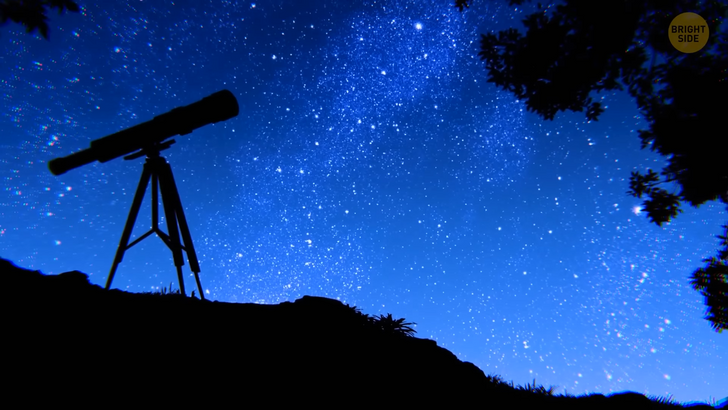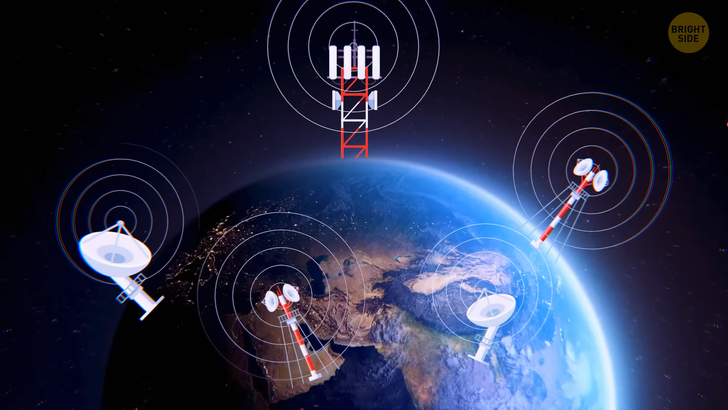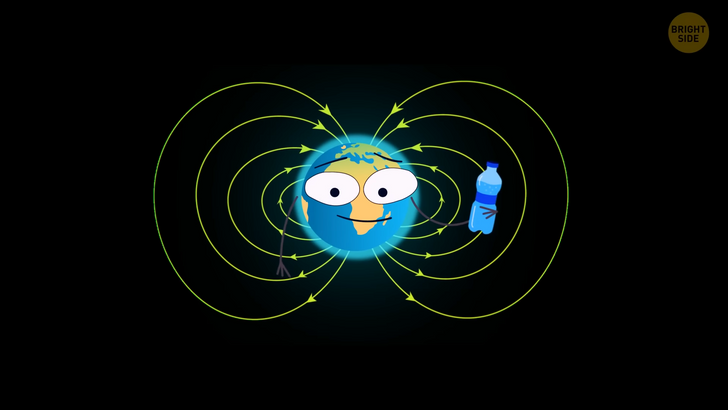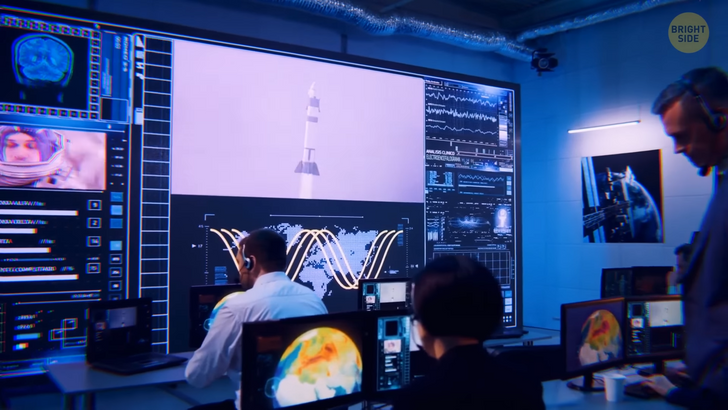15 True Stories That Could Belong in a David Lynch Movie

Ever looked at the stars and wondered if there’s anyone else out there? A different type of creature, living on another planet, just waiting to be introduced to a different species. How come we’ve never stumbled upon other life than we are in our galaxy? And, more interestingly, if we aren’t alone in the universe, it is curious that no one has ever tried to get into contact with us. The Fermi Paradox aims to answer many of these questions.

Let’s be honest, they’ve puzzled scientists, philosophers, and the general population for decades. It is named after the Italian physicist Enrico Fermi, who first proposed it in 1950. Given that the universe is vast and there’s a pretty good chance other planets exist that could potentially harbor life, it seems quite normal to assume that there must be other intelligent civilizations out there somewhere.
However, despite humanity’s best efforts, we have not yet detected any real evidence of life outside of our planet. Apart from the people we’ve sent into outer space on purpose, of course. This lack of evidence has made people wonder if we are truly alone in the universe. More so, if there’s another, more sinister reason for why we have not yet found any aliens. One possible theory suggested is that we simply have not looked long or hard enough.
The universe is immense, and other civilizations could likely exist on planets that are too far away for us to detect. The technology we would need to identify these civilizations is probably not even invented yet. Or even if it is, it’s surely not powerful enough to reach across lightyears of space. Could it be that we are the only intelligent life in the universe? This theory suggests that the conditions necessary for life to evolve and thrive are very rare.

Like in our case, for example, the fact that our Earth has water, a stable atmosphere, a magnetic field, and a pretty reasonable climate. Some scientists can’t help but think that ours is the only planet in the universe that has managed to produce these conditions, and because of that also have intelligent beings wandering around its surface.
However, this theory does not fully explain the paradox, as it does not account for the fact that the universe is so vast and has been around for so long, way longer than we have. The age of the universe is estimated to be around 13.8 billion years old, while our planet is only about 4.5 billion years old. Give or take a few million... A more plausible suggestion is that there are other intelligent civilizations out there, but they are simply too far away for us to detect.
This theory suggests that these civilizations may be located on planets that are much farther away from us than we can currently detect, or that they may be located in different galaxies entirely. Sorry to break it to you, but the universe is also expanding. Which means that things aren’t staying put. Even if we had the technical capabilities to start traveling between planets and galaxies, they might simply be moving away from us at a speed we’d never manage to catch up to.

Just like all the previous ones, this theory has some flaws. That’s because it does not fully explain why we have not yet detected any evidence of these civilizations. If they’re far away, we’re surely not able to detect them. But why aren’t they trying to get in touch with us?
It’s hard to imagine that all of the other civilizations that may be chilling in our universe as we speak are less evolved than us. Looking back on a planetary scale, humans are really young. If we imagine that our planet is just one year old, then humans popped up on its surface during the final 20 minutes on December 31st! Compared to the whole existence of the entire universe, we’re simply a blip!
A final theory is that there are other intelligent civilizations out there, but they are simply too technologically advanced for us to detect. This idea indicates that these creatures are light years ahead of us in terms of science and development. They may already have technologies that are far beyond what we are capable of, and they are supposedly using these technologies to stay hidden from us.
Sadly, this theory is somewhat more plausible, though it does mean that no other civilization wants to be friends with us and come out and play in outer space. It does explain why we have not yet detected any real evidence of life outside our planet, but it does suggest another, more sinister fact. It raises the question of why these civilizations would choose to stay hidden, and what their motivations might be.

Sadly, the Fermi Paradox remains an open question, and scientists and philosophers continue to debate the possible explanations for why we have not yet found any friends to play with in the universe. Only time will tell whether or not we will be able to solve this mystery. There’s still a lot we have to accomplish when it comes to space exploration. In the future, space travel will continue to be mostly carried out by scientific and commercial robotic missions. However, the idea of your everyday human traveling to space will likely remain a dream for a long time.
That’s because of the high costs and dangers of injury associated with the process. Launching a single person into space currently requires a significant amount of energy, and the journey exposes individuals to extreme radiation and high speeds within a field of debris. Sure, there have been attempts by rich people to make space travel more accessible, but it’s still out of reach for most people: a single seat for a ride on a Soyuz capsule costs over $20 million.
Some scientists believe we should invest more time and effort into space travel. But if you think about it, there’s really no other place like Earth for us nearby. We can’t breathe outside our atmosphere, and there’s no space object in our solar system that can support life as we know it. Take Mars, for instance.

Even if we’d manage to travel there eventually, by the time we’d reach the red planet, we would have already spent months living in microgravity. That also means it would take us a lot of time to physically recover before they could start exploring this planet. After years of research, NASA figured out that living in microgravity conditions heavily affects the human body. It means loss of bone and muscle mass, as well as a shift in the normal movement of body fluids, which tend to go upwards. This can lead to pressure on the eyes and even affect our vision.
Just because we can’t confirm there’s life outside our planet doesn’t mean we didn’t have some pieces of evidence throughout the years. Like in 2001, for example, when NASA researchers suggested an interesting theory about Jupiter’s moon, Europa. They mentioned that frozen bits of bacteria may be the cause of Europa’s red tinge and its mysterious infrared signal.
While magnesium salts were previously thought to be responsible for the infrared reflections, data from bacteria living right here on our planet — that thrive in extreme conditions — fits the data just as well. These bacteria also have red and brown coloring, which could explain the reddish appearance of Europa. While it is unlikely that bacteria could survive on Europa’s surface due to the extremely cold temperatures and lack of atmosphere, it is possible that they could survive in the warmer liquid interior and be released through geological activity.

Going back to 1977, when a strange signal from outer space was picked up by a radio telescope at Ohio State University. The signal lasted for 37 seconds and was so strange that the person who saw it wrote “Wow!” on the printout. The signal was very different from the usual signals that come from space.
Sure, it could have come from a huge event in space, but it also could have come from intelligent creatures living in the universe that had a very strong transmitter. To this day, no one knows for sure what caused it.











